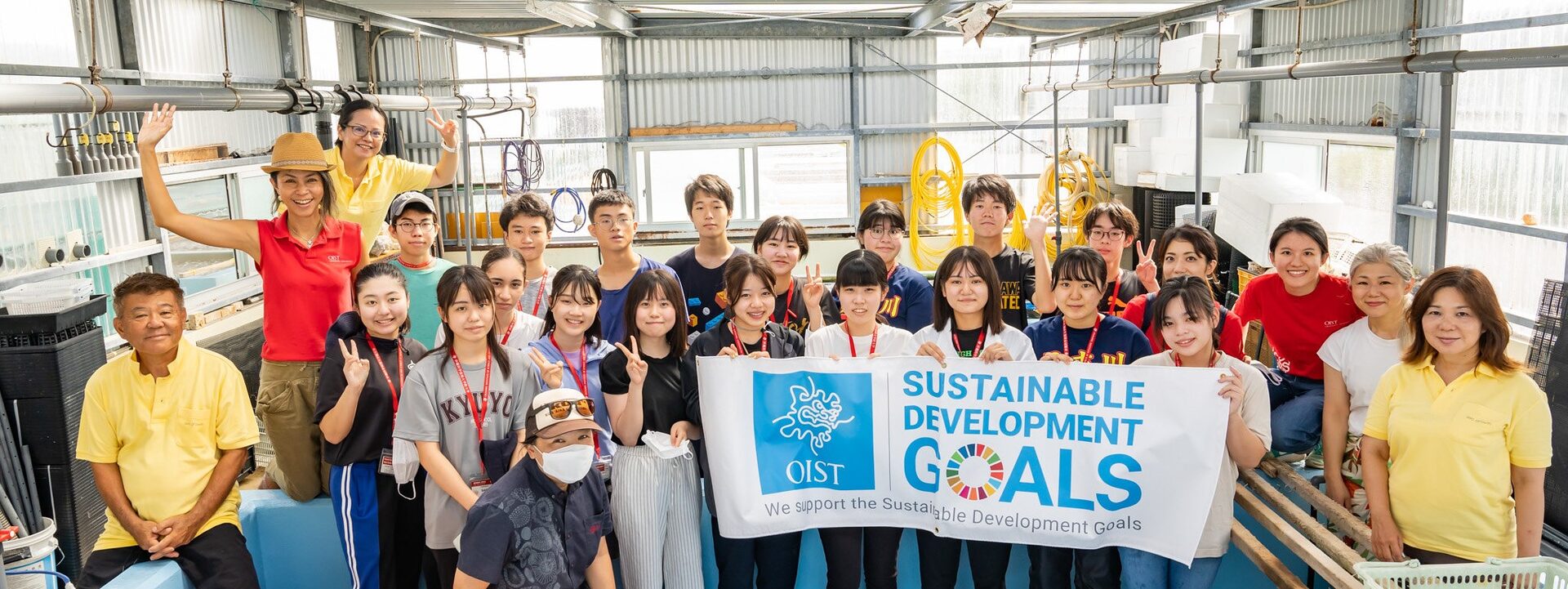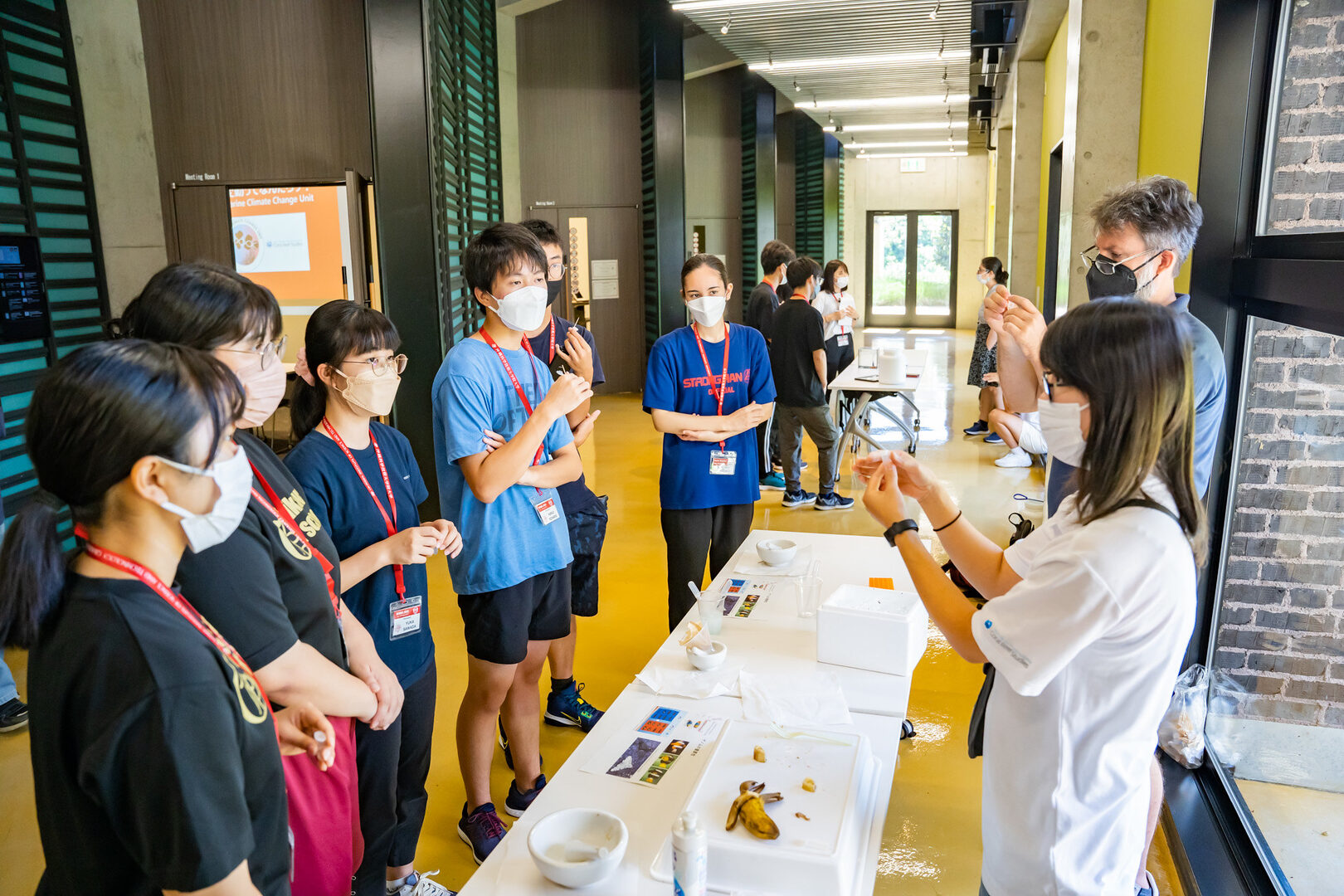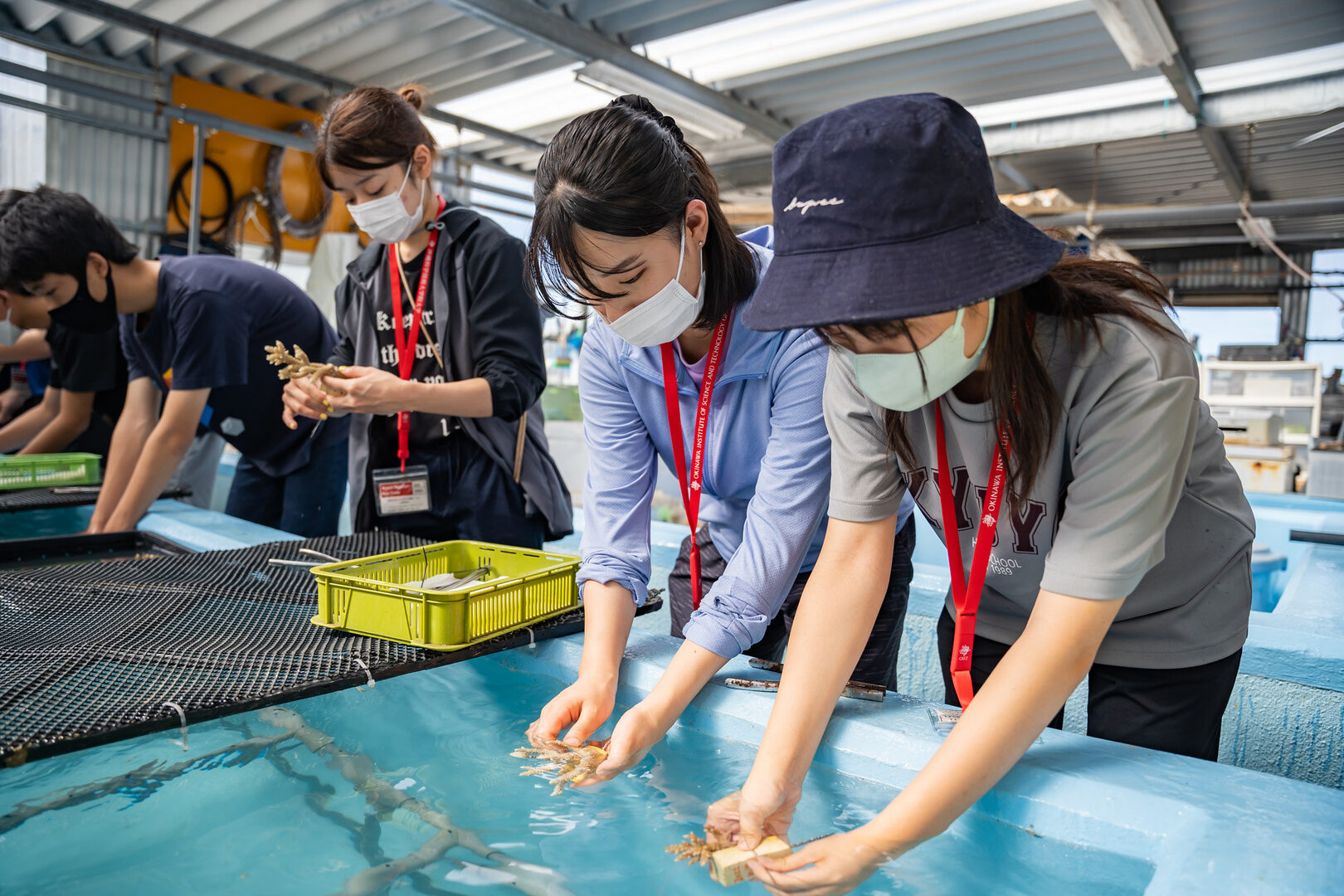Okinawan high school students learn about sustainability sciences and island sustainability at SHIMA 2022

From 16th – 19th August 2022, a group of 18 students from different high schools in Okinawa Prefecture participated in SHIMA, an annual workshop aimed to foster their interest in STEM (Science, Technology, Engineering and Mathematics), SDGs (Sustainable Development Goals) and island sustainability, with two of the participants coming from Miyako Island. We received around 60 applicants from high schools across Okinawa Prefecture and the workshop was hosted by OIST and funded by U.S. Consulate General Naha.
During the four-day intensive workshop, the high school students attended lectures, demonstrations, and hands-on experiments by OIST professors, researchers, PhD students as well as experts involved in agriculture and marine conservation from the local community. The first day opened with an information session on scholarships and higher education opportunities in the United States by U.S. Consulate General Naha. Dr. Misaki Takabayashi, Vice Dean of the Graduate School, talked to the students on what island sustainability means as an introduction to the workshop. Speakers and volunteers from OIST Marine Climate Change Unit, Marine Eco-Evo-Devo Unit, Marine Biophysics Unit, and Evolution, Cell Biology, and Symbiosis Unit also engaged with the high school students and provided lectures and hands-on activities on a diverse range of topics related to sustainability from the viewpoint of scientific research.

The hands-on activities include ocean acidification experiments, extracting DNA from fruits, observing juvenile clownfish and foraminifera, visiting honeybee hive box on local farmland, and many more. The participants also went on educational field trips to learn about measures to prevent red soil runoff and visited a local fishing harbor to learn about coral planting to help restore dying reefs.

At the end of the workshop, the students presented what they had learned during the workshop moderated by the science communicators from GODAC (Global Oceanographic Data Center). The science communicators from GODAC also provided lessons on deep sea biodiversity and resources, as well as the origin of Okinawan islands and our lives which sums up the concept of the workshop on island sustainability.
Thanks to many experts and volunteers who have contributed SHIMA, the participants underwent a unique program filled with enriching learning opportunities. “For four days, I had an experience that could only be possible at OIST. I learned about cutting-edge research in Japan, met researchers who are trying to solve problems Okinawa is facing, and felt their passion to make Okinawa a better place. Not only the researchers, but the coral conservationists and local experts were also professional,” said one of the students in their anonymous feedback. “It was very fulfilling and fun, and I learned a lot. It has strengthened my desire to work to protect the environment in the future.”
by Fangyi Tai



